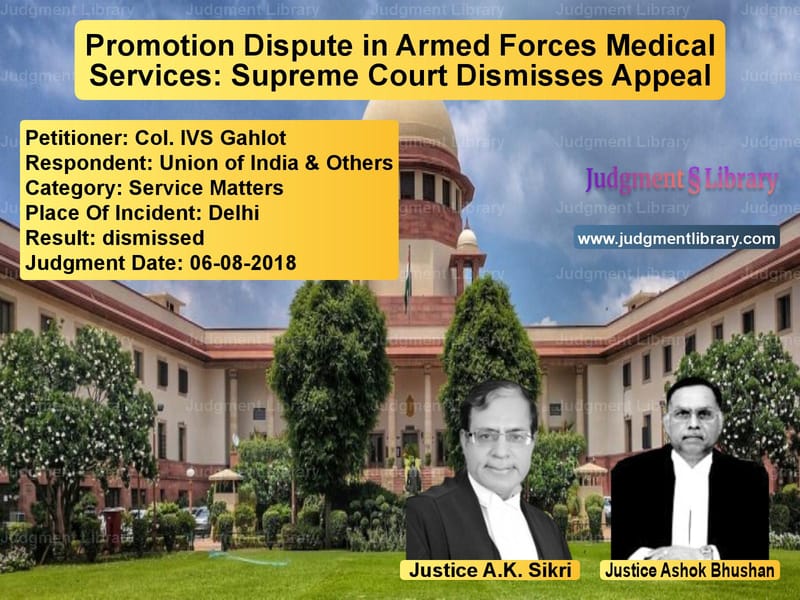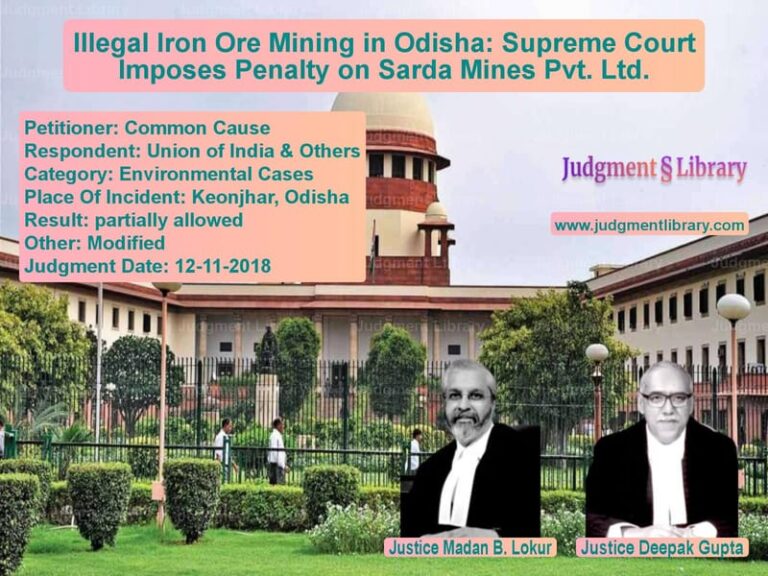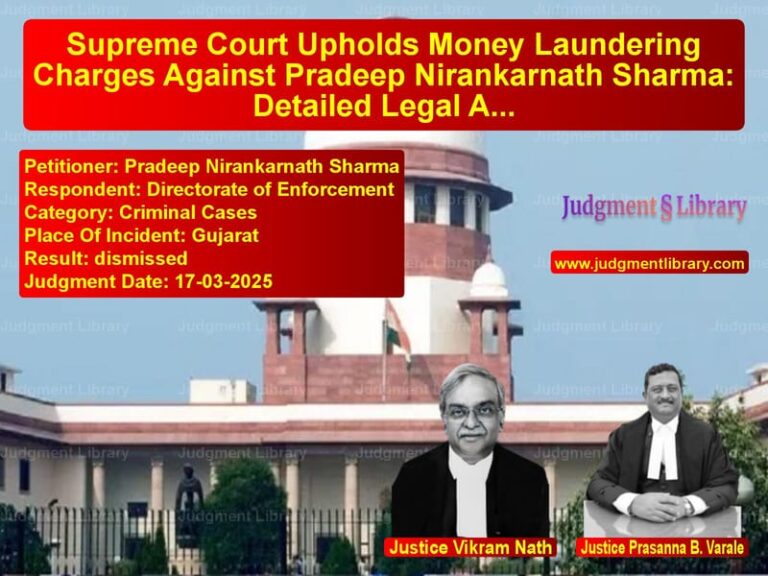Promotion Dispute in Armed Forces Medical Services: Supreme Court Dismisses Appeal
The Supreme Court of India recently adjudicated a significant case concerning promotion disputes in the Armed Forces Medical Services (AFMS). The case, Col. IVS Gahlot v. Union of India & Others, revolved around the appellant’s challenge to his non-promotion to the rank of Brigadier. The core issues included the recognition of academic qualifications for awarding marks in the promotion process and the validity of changes to the promotion policy.
Background of the Case
The appellant, Col. IVS Gahlot, was commissioned in the Indian Army’s Armed Forces Medical Services (AFMS) on April 6, 1984. He was promoted to the rank of Colonel on January 1, 2007. In November 2011, he was considered for promotion to Brigadier by the Promotion Board (Medical) but was not selected. Dissatisfied, he filed a statutory complaint against the non-selection.
The statutory complaint was partially accepted, leading to the expunging of certain adverse remarks in his performance record. He was subsequently reconsidered for promotion by the Review Promotion Board (Medical) in June 2013, but was again not selected. Aggrieved, he filed O.A. No. 428/2013 before the Armed Forces Tribunal, which dismissed his petition. He then appealed to the Supreme Court.
Key Issues Raised
- Whether the appellant’s Ph.D. degree and post-graduate training should have been awarded marks in the promotion process.
- Whether the amendment to the promotion policy in 2006, which modified the eligibility criteria for marks allocation, was valid.
- Whether the denial of promotion to the appellant was legally justified.
Appellant’s Arguments
The appellant, represented by senior counsel, argued that:
- He was denied marks for his Ph.D. in Anthropology from Berhampur University, which should have been considered for promotion.
- His post-graduate training from G.S.V.M. Medical College, Kanpur, was not given due recognition.
- The change in promotion policy in 2006 was premature, as the original policy (2004) stated it would be reviewed only after five years.
- Had he been granted the appropriate marks, he would have been promoted to the rank of Brigadier.
Respondent’s Arguments
The Union of India countered that:
- The Ph.D. degree was not recognized by the Medical Council of India (MCI) and thus could not be awarded marks under the amended promotion policy.
- The post-graduate training was not part of an integrated program undertaken during study leave, as required under the policy.
- The government had the authority to amend the promotion policy at any time, and the 2006 amendment was legally valid.
Supreme Court’s Observations
The Supreme Court, comprising Justices A.K. Sikri and Ashok Bhushan, examined the case in detail. The Court made the following key observations:
On the Validity of the Promotion Policy Amendment
“It is always open to an employer to change its policy in relation to promotion of employees. The stipulation in the 2004 policy that it would be reviewed after five years did not restrict the government from making amendments earlier if needed.”
On Recognition of the Ph.D. Degree
“The Ph.D. degree obtained by the appellant from Berhampur University in Anthropology (Science) is not recognized by the Medical Council of India. The policy amendment in 2006 rightly restricted marks allocation to only those Ph.D. degrees recognized by MCI.”
On Post-Graduate Training
“The certificate produced by the appellant does not indicate completion of a full-time structured training program during study leave, as required under the promotion policy. Hence, the claim for marks allocation on this ground is not valid.”
Final Judgment
The Supreme Court dismissed the appeal, upholding the Armed Forces Tribunal’s decision. It ruled that:
- The government was within its rights to amend the promotion policy in 2006.
- The Ph.D. degree did not meet the necessary criteria for marks allocation.
- The post-graduate training did not satisfy the requirements under the promotion policy.
Implications of the Judgment
- Affirmation of Employer’s Authority: The ruling upholds the government’s right to amend promotion policies as necessary.
- Clarification on Academic Recognition: Only Ph.D. degrees recognized by MCI are eligible for consideration in medical service promotions.
- Strict Interpretation of Policy Guidelines: Candidates must meet all specified criteria to be awarded marks in promotion evaluations.
Conclusion
The Supreme Court’s decision in Col. IVS Gahlot v. Union of India sets an important precedent in employment law, particularly within the Armed Forces Medical Services. It reinforces the principle that promotion policies must be strictly adhered to and that amendments to such policies are within the employer’s prerogative. This ruling ensures fairness and uniformity in the promotion process within the armed forces.
Petitioner Name: Col. IVS Gahlot.Respondent Name: Union of India & Others.Judgment By: Justice A.K. Sikri, Justice Ashok Bhushan.Place Of Incident: Delhi.Judgment Date: 06-08-2018.
Don’t miss out on the full details! Download the complete judgment in PDF format below and gain valuable insights instantly!
Download Judgment: Col. IVS Gahlot vs Union of India & Oth Supreme Court of India Judgment Dated 06-08-2018.pdf
Direct Downlaod Judgment: Direct downlaod this Judgment
See all petitions in Employment Disputes
See all petitions in Promotion Cases
See all petitions in Public Sector Employees
See all petitions in Judgment by A.K. Sikri
See all petitions in Judgment by Ashok Bhushan
See all petitions in dismissed
See all petitions in supreme court of India judgments August 2018
See all petitions in 2018 judgments
See all posts in Service Matters Category
See all allowed petitions in Service Matters Category
See all Dismissed petitions in Service Matters Category
See all partially allowed petitions in Service Matters Category







